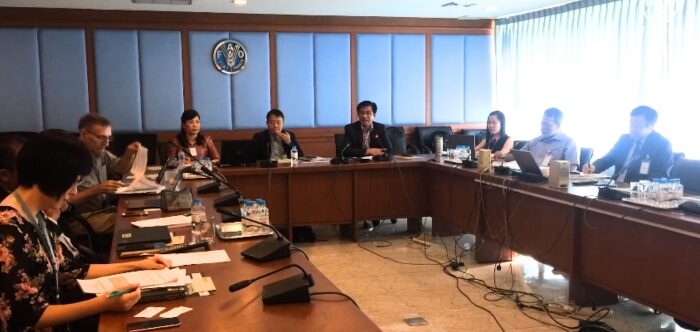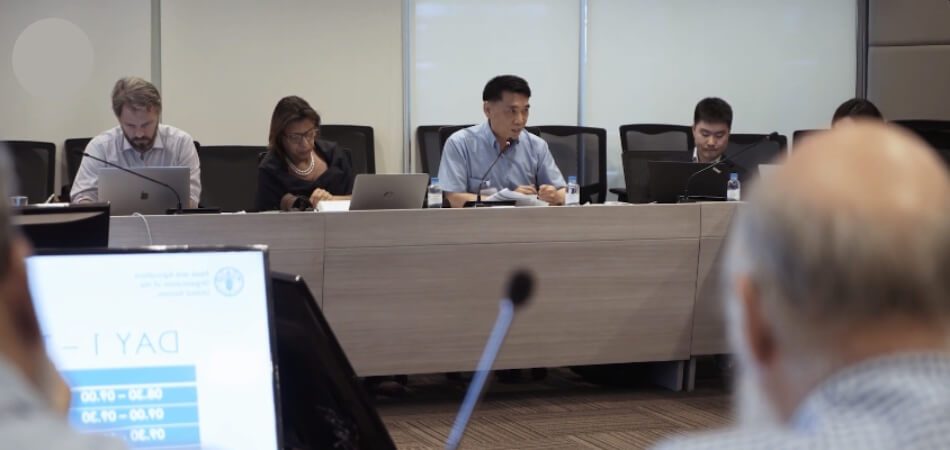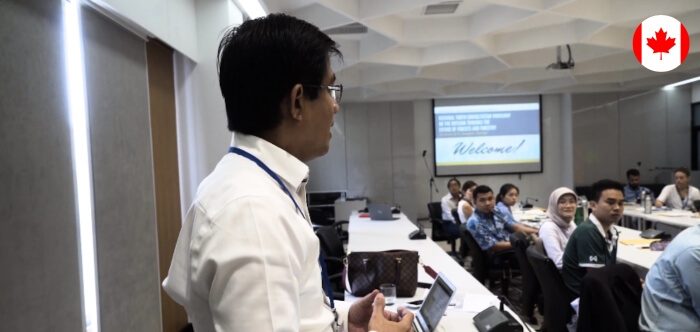Forestry Conferences play a pivotal role in shaping the future of our forests, driving innovation, and ensuring the sustainable management of these vital ecosystems. But as you consider attending one, you might wonder, who should attend forestry conferences?
Forestry professionals, researchers, environmentalists, and anyone interested in sustainable forest management, conservation, or related fields should attend a Forestry Conference to gain valuable insights, network, and contribute to the advancement of forestry practices.
In this blog, we’ll explore who attends forestry conferences and why. Whether you’re new or experienced in forestry, you’ll learn why these events are so valuable for everyone involved. Let’s dive into the diverse mix of people who bring knowledge, ideas, and action to these gatherings.
The Purpose of the Forestry Conference
Forestry conferences serve as vital forums for knowledge dissemination, fostering innovation, and collaboration. These gatherings convene experts from diverse backgrounds, providing a platform for cross-pollination of ideas and the exchange of best practices.
By facilitating dialogue among forestry professionals, scientists, and conservationists, these conferences contribute significantly to advancing sustainable forest management. Attendees gain insights into emerging trends and technologies, enabling them to adapt and implement effective strategies in their respective fields.
Moreover, forestry conferences play a crucial role in addressing pressing environmental challenges. They promote the exchange of research findings and discussions on conservation initiatives, paving the way for collective action toward preserving our invaluable forests.
Who Should Attend Forestry Conference?
Forestry conferences attract a diverse audience passionate about forests. These events cater to a wide range of professionals, students, and enthusiasts who share a common interest in forestry and its related fields.
Forestry Professionals
Forestry conferences are essential for professionals such as foresters, arborists, and land managers. These individuals gain access to the latest industry trends, sustainable practices, and networking opportunities. Attending conferences helps them stay updated, adapt to evolving challenges, and enhance their careers in forestry.
Researchers and Scientists
Researchers and scientists play a vital role in the forestry community. Attending conferences allows them to present their findings, receive valuable feedback, and collaborate with peers. These events serve as platforms for sharing groundbreaking research that contributes to the advancement of forestry knowledge and practices.
Environmentalists and Conservationists
For environmentalists and conservationists, forestry conferences offer a unique chance to engage with forestry professionals. They can advocate for sustainable practices, learn about forest conservation initiatives, and collaborate on projects that promote environmental protection and biodiversity.
Students and Aspiring Forestry Enthusiasts
Students pursuing forestry-related fields or those with a passion for forests benefit immensely from attending conferences. These events offer educational sessions, mentorship opportunities, and exposure to real-world challenges. Students can forge connections with professionals and jumpstart their careers.
Government Representatives
Government officials and policymakers play a critical role in shaping forestry policies and regulations. Attending conferences equips them with insights into industry needs and innovations, helping them make informed decisions that support sustainable forest management and conservation efforts.
Industry Stakeholders and Businesses
Companies in the forestry and related sectors find value in attending conferences to showcase their products, services, and innovations. These events offer a platform to connect with potential clients, partners, and investors, fostering business growth and collaboration.
Forestry conferences welcome everyone. Whether you’re a pro, researcher, student, environmentalist, policymaker, or a business, you’ll find valuable opportunities to learn and contribute to forestry.
Why Should You Attend the Forestry Conference?
For both professionals and fans, attending a forestry conference is highly recommended for several reasons. These gatherings operate as energetic centers for cooperation, creativity, and knowledge sharing. Here are some key motivations behind attending forestry conferences:
Knowledge Enrichment
Forestry conferences are knowledge hubs where attendees can gain insights into the latest industry trends, technologies, and research findings. They provide a unique opportunity to expand one’s understanding of forestry-related topics.
Networking Opportunities
Attending these conferences allows individuals to connect with a diverse community of professionals, researchers, and enthusiasts. Networking can lead to collaborations, job opportunities, and valuable industry contacts.
Professional Development
For professionals, conferences offer a chance to enhance their skills and stay updated on best practices. Workshops, seminars, and presentations provide practical knowledge that can be applied in their careers.
Research Dissemination
Researchers can present their work, receive feedback, and share their findings with a wider audience. This exposure can lead to valuable discussions and potential partnerships.
Environmental Advocacy
Environmentalists and conservationists use forestry conferences as platforms to advocate for sustainable practices and the protection of natural resources. They can engage with industry stakeholders and promote conservation initiatives.
Career Advancement
Students and aspiring forestry enthusiasts benefit from conferences by gaining exposure to real-world challenges and connecting with potential mentors. Attending these events can kickstart their careers in forestry.
Forestry conferences are fantastic for learning, meeting people, improving skills, and working together. Whether you want to know more about forestry, boost your career, or help the environment, these events have lots of good reasons to attend.
How does the Forestry Conference Contribute to Forestry and Environmental Conservation?
The Forestry Conference plays a pivotal role in advancing sustainable practices and environmental conservation in numerous ways. Here, we’ll explore some key contributions these conferences make to the world of forestry and environmental protection.
- Knowledge Exchange: Experts share insights and research findings, promoting informed decision-making in forest management and conservation.
- Collaboration Catalyst: Conferences foster partnerships among stakeholders, encouraging joint initiatives for forest preservation and ecosystem protection.
- Policy Influence: Attendees engage with policymakers, advocating for regulations that support sustainable forestry and environmental conservation.
- Technological Advancements: New tools and technologies showcased at conferences aid in more efficient and eco-friendly forest management.
- Best Practices Dissemination: Industry leaders share successful strategies that can be replicated for better environmental outcomes.
- Conservation Advocacy: Environmentalists use these platforms to raise awareness about forest conservation and advocate for responsible forestry practices.
- Research Amplification: Researchers can present findings that influence the development of innovative conservation solutions and strategies.
- Education and Outreach: Conferences provide opportunities to educate the public and inspire environmental stewardship.
- Networking for Impact: Environmental organizations and professionals connect to amplify their collective impact on conservation efforts.
- Global Perspective: International participation in conferences fosters a global understanding of forestry challenges and solutions for a more sustainable future.
Tips For Maximizing Your Experience at Forestry Conference
Attending forestry conferences can be a game-changer, but making the most of them requires some strategic planning and participation. Here are essential tips to ensure you get the most out of your forestry conference experience:
Plan Ahead
Before the conference, review the agenda, select sessions relevant to your interests, and create a schedule. Prioritize sessions and events you must attend to maximize your learning opportunities. Identify key speakers or presenters you want to hear, and consider preparing questions in advance to engage more actively.
Engage Actively
During sessions, engage actively by participating in discussions, asking questions, and interacting with speakers and fellow attendees. Networking is a valuable aspect of conferences, so don’t be shy about starting conversations and exchanging contact information. These connections can lead to collaborative projects and career opportunities.
Take Notes and Reflect
Bring a notebook or use a note-taking app to jot down key insights, ideas, and action items during sessions. Additionally, take time to reflect on these notes at the end of each day. Consider how the information you’ve gathered can be applied to your work, research, or projects. This reflection will help you internalize the knowledge gained.
Visit Exhibits
Explore exhibition areas to learn about new technologies, products, and services that can benefit your work or research. Engage with exhibitors, ask questions, and gather information to stay updated on industry advancements. Make a list of products or services that may be useful to explore further after the conference.
Network Strategically
Identify individuals or organizations you want to connect with and plan your interactions. Networking events, coffee breaks, and social gatherings can be ideal opportunities to build relationships and explore potential collaborations. Don’t limit yourself to your immediate field; consider connecting with professionals from related industries for broader insights.
Share Your Experience
Consider live-tweeting or blogging about the conference to share your takeaways and insights with a wider audience. This not only helps you solidify your own learning but also contributes to the conference’s impact in disseminating valuable information. Engage with conference hashtags and online discussions to connect with others who attended.
Apply and Share Knowledge
After the conference, take time to reflect on what you’ve learned and how you can apply it to your work, research, or advocacy efforts. Create an action plan to implement the knowledge and ideas you’ve gained. Additionally, consider presenting your insights or findings from the conference to your colleagues or peers, further contributing to knowledge dissemination.
By following these comprehensive tips, you’ll not only maximize your experience at forestry conferences but also make a lasting impact on your professional development and the advancement of forestry practices and environmental conservation.
Conclusion
Forestry conferences are much more than just gatherings. They are hubs of knowledge and innovation, focusing on sustainable forest management and conservation. These events draw a wide range of attendees, from professionals and researchers to students and policymakers.
So, if someone asks, who should attend forestry conference? It’s anyone and everyone passionate about forests, their well-being, and the environment at large. Whether you’re an expert, a student, or just someone curious about forests, these conferences have something valuable to offer.
By participating, attendees can stay updated on the latest in forest research, meet like-minded individuals, and play a role in shaping a greener, more sustainable future for our planet.








